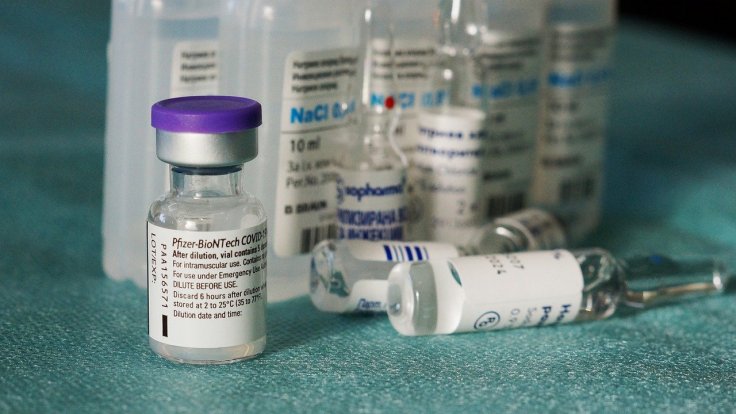Posts claiming Pfizer cashing in on the rare side effect of its COVID vaccine causing heart disease were doing rounds on Social Media recently. Pfizer was the first company to bring a COVID vaccine into the market in the US in collaboration with the German company BioNTech.
"Some known risks of their jab are blood clots and cardiomyopathy. Luckily for them, they make Eliquis for treating blood clots, sales up 13%. They also make Vyndaqel to treat cardiomyopathy sales are up 77%," a September 24 Instagram post claimed. "Pfizer made $19 Billion in Q2 this year, or $211 million per day."

Fact Check: The claims are falsified
Research showed that Cardiomyopathy is not related to any COVID vaccine as a potential side effect, according to USA Today. Some research revealed that the vaccines might be responsible for a slightly increased risk of the blood clots for which Pfizer sells medication. However, experts claimed that given the rarity of the condition, it is impossible to connect the increased profits for the drug with the side effect of the vaccine.
According to the Centers for Disease Control and Prevention, blood clots are a rare side effect of the COVID-19 vaccine and the blood clot syndrome associated with the vaccine that can be treated by Pfizer drug Eliquis is even rarer. CDC reported 49 confirmed cases of thrombosis with thrombocytopenia syndrome [blood clot condition associated with COVID vaccine] in September. 2 of them were related to the Moderna vaccine and the rest 47 were associated with Johnson & Johnson vaccine. No confirmed cases of thrombosis with thrombocytopenia syndrome associated with the Pfizer vaccine were reported as of September, according to CDC.
"There is no evidence to conclude that arterial or venous thromboembolic events, with or without thrombocytopenia, are a risk associated with the use of our COVID-19 vaccine," Pfizer spokesperson Steve Danehy said.
COVID-19 more likely to cause the condition that Pfizer drug Eliquis treats
Oxford University conducted a survey of nearly 540,000 COVID cases and discovered that about 4 in 1 million people were diagnosed with cerebral venous thrombosis (brain blood clots) after getting the Pfizer vaccine. However, the risk of blood clot was found to be about 10 times more, 39 in 1 million amongst those who were diagnosed with COVID-19. "There is limited evidence the Pfizer's COVID vaccine may cause blood clots, and if it does it is a rare side effect, " Dr. Jesse Goodman, the director of Georgetown University's Center on Medical Product Access, Safety and Stewardship said.









